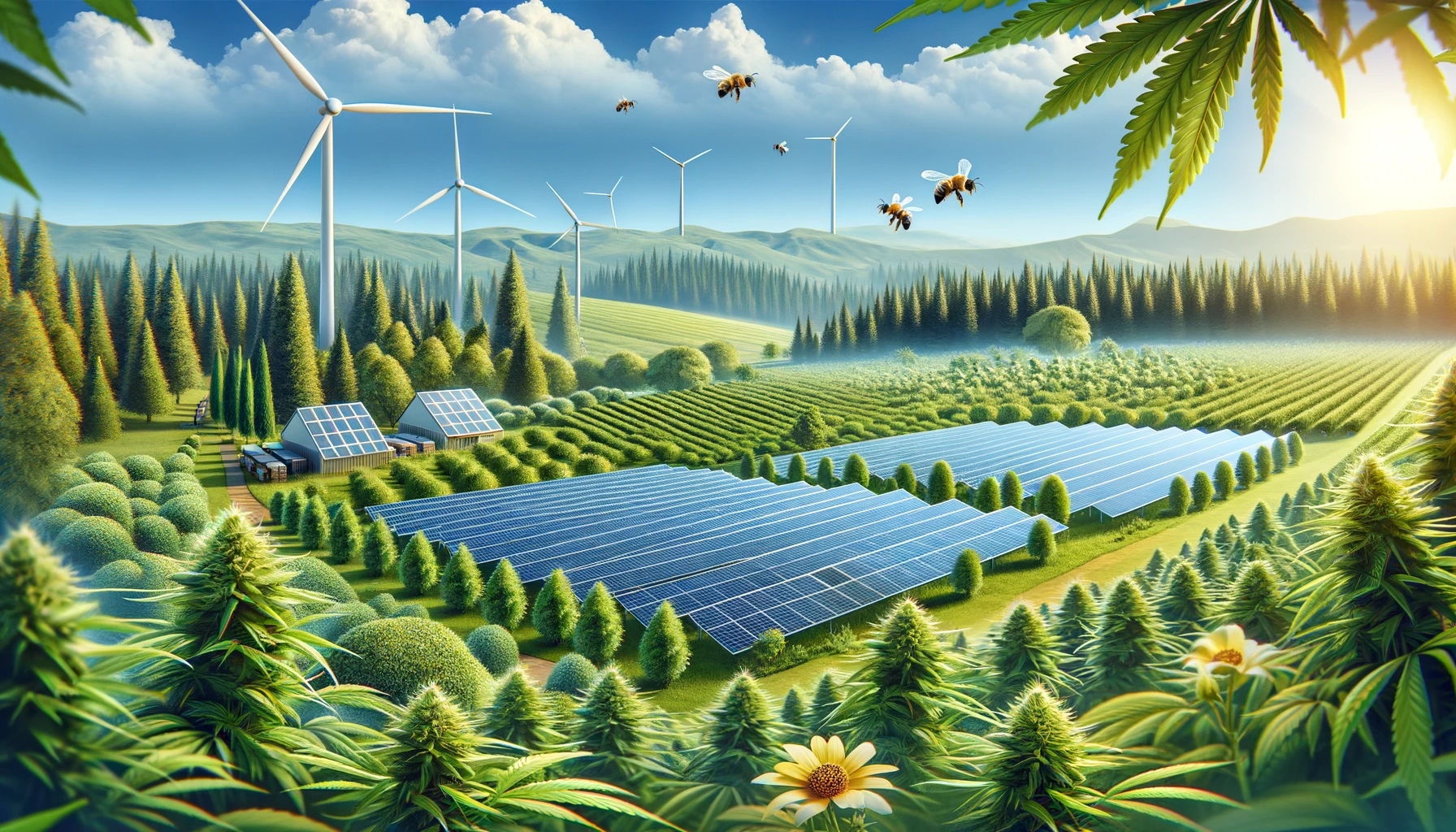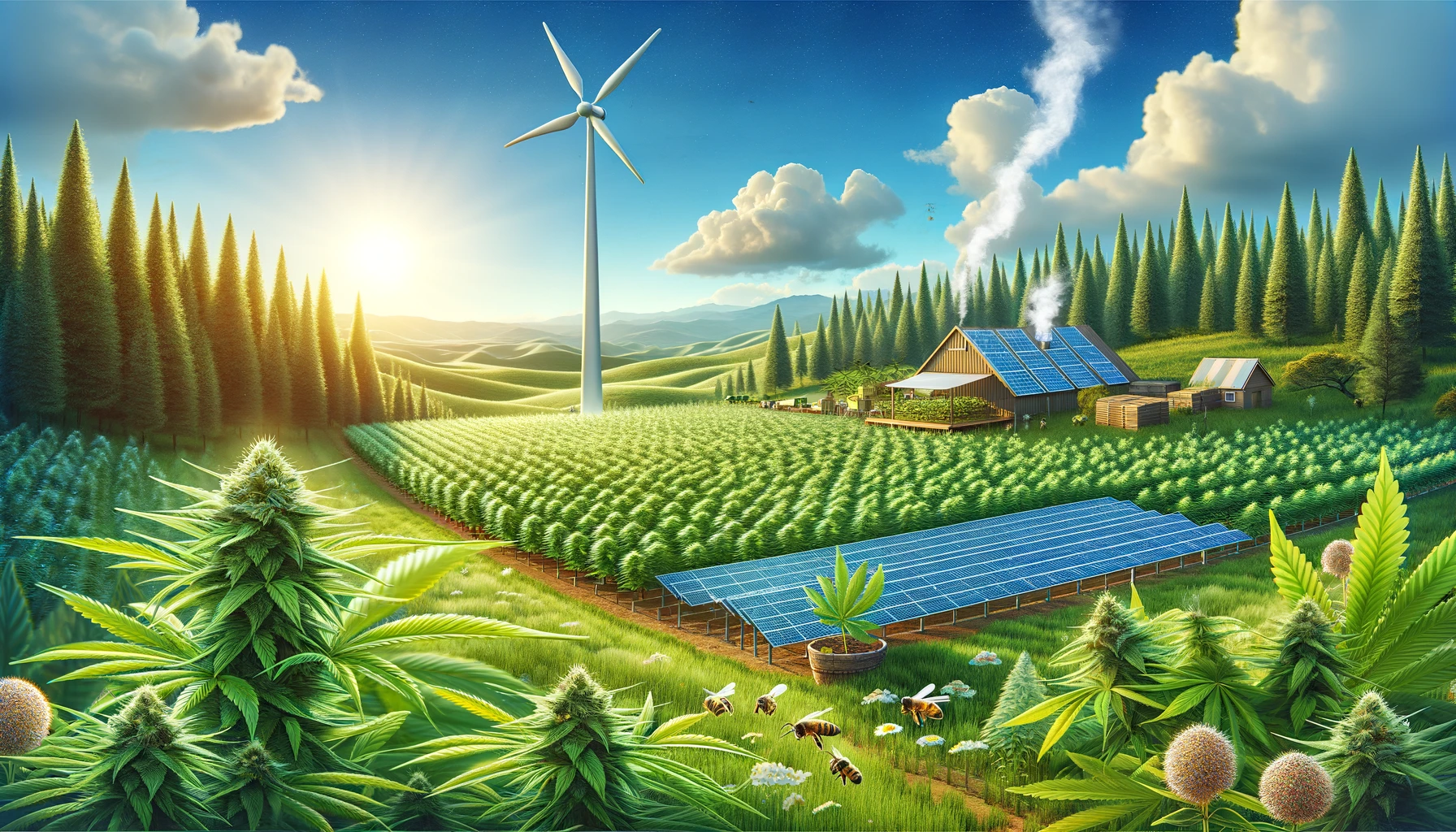As Canada witnesses an unprecedented surge in cannabis cultivation, the demand for high-quality marijuana seeds has reached new heights. This burgeoning growth underscores the critical importance of integrating environmentally friendly practices into cannabis farming. In an era where ecological consciousness is paramount, the cannabis industry stands at a crossroads.
Embracing sustainability is not just a choice but a necessity to ensure the well-being of our planet. As cultivators and consumers alike become more environmentally savvy, the industry is called upon to adopt practices that prioritize ecological balance, setting a new standard in responsible and sustainable cannabis production.
Table of Contents
The Current State of Cannabis Farming
The landscape of cannabis farming is evolving, bringing with it a host of environmental challenges that mirror the industry’s growth. As Canadians increasingly seek to buy cannabis seeds, the impact of this cultivation on the environment becomes more pronounced. Issues like intensive water usage, land degradation, and significant energy demands are at the forefront of these challenges. These environmental concerns are not just the talk among industry insiders but have sparked a broader dialogue among environmentalists, policymakers, and the public. The need for sustainable approaches in cannabis farming is more urgent than ever, as the industry’s ecological footprint becomes increasingly visible.
Sustainable Cannabis Farming Practices
Confronted with these environmental challenges, the cannabis industry is witnessing a paradigm shift towards sustainability. Embracing organic cultivation methods is not only a step towards eco-friendliness but also assures consumers of a cleaner, purer product. In the realm of water usage, innovative conservation methods like rainwater harvesting and precision drip irrigation are taking center stage. These practices are crucial in regions facing water scarcity. Furthermore, energy efficiency is becoming a hallmark of modern cannabis cultivation, especially in indoor farming environments. This shift is evident in several pioneering Canadian cannabis farms, which serve as beacons of sustainable practices. These farms exemplify how environmental stewardship can coexist with profitable cultivation, setting a new standard for the industry.
Indoor vs. Outdoor Cultivation
The choice between indoor and outdoor cannabis cultivation is a significant one, with profound environmental implications. Indoor cultivation offers the benefits of controlled environments and year-round production, but at the cost of high energy consumption, primarily due to lighting and climate control systems. On the other hand, outdoor cultivation harnesses natural elements, substantially reducing energy usage. However, it can pose challenges in terms of land use and potential impacts on local ecosystems. For consumers in Canada, particularly those keen on buying cannabis seeds, the environmental footprint of these cultivation methods is becoming an important consideration. This growing awareness is steering the market towards producers who align with their environmental values.

Technology and Innovation in Eco-Friendly Cultivation
In the realm of eco-friendly cannabis cultivation, technology and innovation are key drivers of change. Cutting-edge LED lighting systems have dramatically reduced the energy demands of indoor cultivation, setting a new standard in efficiency. Beyond lighting, automated irrigation systems are revolutionizing water usage, ensuring precise delivery and reducing waste. Another frontier is the development and use of biodegradable packaging, addressing the issue of waste in the industry. These technological advancements are not just environmental game-changers; they also offer economic benefits. This synergy of ecology and economy is reshaping the market for marijuana seeds in Canada, aligning consumer preferences with sustainable practices.
Challenges in Sustainable Cannabis Cultivation
Advancements in sustainable cultivation, while promising, face their own set of challenges. Legal frameworks and economic factors can act as barriers to the widespread adoption of these practices. Moreover, a significant knowledge gap exists among growers and consumers in Canada, which impedes the full realization of a sustainable cannabis industry. This gap highlights the need for enhanced education and awareness initiatives, empowering stakeholders with the knowledge to make informed decisions. Overcoming these hurdles is essential to advance the industry towards a more sustainable and environmentally responsible future.
Conclusion
As the cannabis industry in Canada, particularly the market for marijuana seeds, continues to grow, it is imperative to prioritize environmental sustainability. The future of eco-friendly cannabis farming looks promising, with technological innovations paving the way. As consumers, growers, and policymakers, we must consider the environmental impacts of our choices, especially when we decide to buy cannabis seeds in Canada. The path towards a greener and more sustainable cannabis industry is not just possible; it’s necessary.

